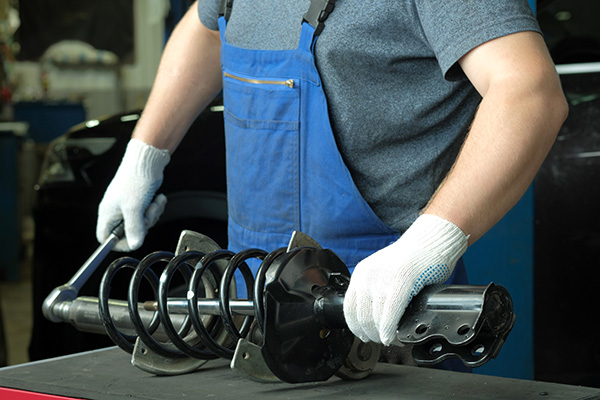
Driving is something we often take for granted—until something feels off. The shock absorbers are one overlooked component that plays a significant role in your vehicle’s performance and safety. These components keep your ride comfortable and, more importantly, safe. But what happens when they fail? Spoiler alert: it’s more than just a bumpy ride. Let’s take a deeper look at how worn-out shock absorbers can impact your driving experience.
What Are Shock Absorbers and Why Are They Important
As the name suggests, shock absorbers absorb and dampen the energy generated by your car’s suspension when it encounters bumps, potholes, or uneven terrain. They work in tandem with your springs to stabilize your car, maintaining proper tire contact with the road and ensuring predictable handling.
Their primary purpose isn’t just comfort—it’s safety. They play a critical role in maintaining your car’s traction and steering control, preventing excessive bouncing that can lead to dangerous situations. Without functioning shocks, the stability of your vehicle is compromised.
The Driving Experience with Failed Shock Absorbers
When shock absorbers fail, the difference is immediately noticeable. One of the first signs is a rougher ride, but that’s just the tip of the iceberg. A faulty shock absorber impacts almost every aspect of your driving experience.
For starters, your car’s ability to grip the road takes a hit. Good shocks keep your tires firmly planted, but worn ones allow excessive movement, especially during cornering or sudden stops. This can lead to a loss of control and increase the chances of skidding.
Braking performance also suffers. Failed shocks extend braking distance, as your car's weight shifts unevenly during hard stops. Imagine trying to stop suddenly in an emergency, only to find that your car takes longer to come to a halt.
Steering is another victim of bad shock absorbers. You might notice your car swaying or leaning excessively when making turns. Over time, this can become unpredictable, turning every drive into a battle to maintain control.
Wear and Tear on Other Components
Failed shock absorbers affect driving and strain other parts of your vehicle. Tires are one of the first casualties. Uneven wear patterns, often called "cupping," develop when shocks can no longer control tire movement. This not only shortens the lifespan of your tires but also leads to noisy, uncomfortable rides.
Your suspension system takes a hit, too. Worn shocks force springs, control arms, and other suspension components to work harder than designed, leading to premature wear. Repairing these parts is costly and avoidable, but it can be done with timely shock absorber maintenance.
The Safety Implications
The biggest concern with failed shock absorbers is the risk to your safety. In wet or slippery conditions, bad shocks reduce traction, making it harder for you to maintain control of your vehicle. The combination of increased braking distances and poor handling can spell disaster in emergency situations.
Even on dry roads, things like swerving to avoid an obstacle or maintaining stability during high-speed driving become risky endeavors. Essentially, driving with bad shocks is like playing roulette with your safety—and it’s not worth the gamble.
Signs Your Shock Absorbers Might Be Failing
Wondering if your shocks are on their last legs? Look out for these telltale signs:
- Bumpy Ride: If every pothole feels like a crater, your shocks might be failing.
- Leaning or Nose-Diving: Your car leans excessively when turning or "dives" forward during braking.
- Unusual Tire Wear: Check your tires for uneven patterns or cupping.
- Oil Leaks: Shocks filled with hydraulic fluid may leak if the seals are damaged.
- Excessive Bouncing: Push down on your car’s hood or trunk. If it bounces multiple times before settling, your shocks need attention.
Why Timely Repairs Matter
Delaying shock absorber repairs might seem like a cost-saving strategy, but it often leads to bigger expenses down the line. Ignoring these issues puts stress on other systems, from your tires to your suspension, all of which cost far more to fix. More importantly, it compromises your safety and the safety of others on the road.
Take Action Before It’s Too Late
Shock absorbers don’t last forever, but they can last long with proper care. Regular inspections can catch wear and tear early, allowing you to replace worn components before they become a safety hazard.
So, the next time your ride feels rougher than usual, or you notice one of the warning signs, don’t brush it off. Addressing the issue early can save you money—and potentially save lives.
Concerned about your vehicle’s performance? Valley Automotive specializes in suspension repairs and safety inspections. Schedule your appointment today to restore your car’s stability and keep your drives safe!